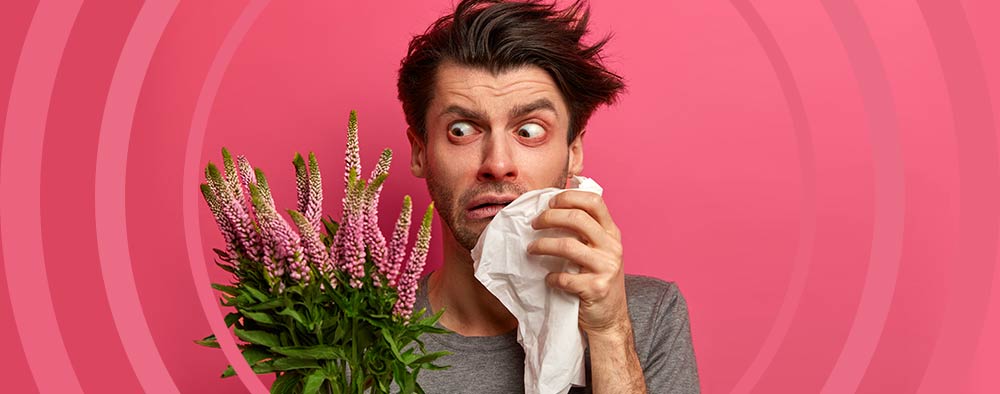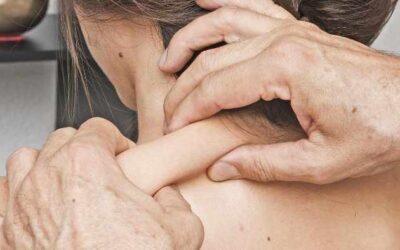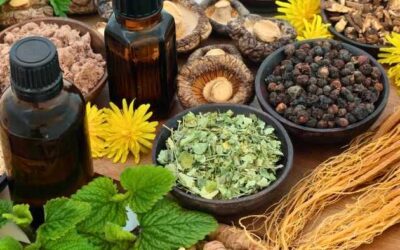by Brent Hearn •
You wake up to sunlight streaming through your windows. With spring on your mind and a spring in your step, you walk outside and recoil with horror at the nightmarish vision that awaits you. The landscape has changed; a yellowish-green blanket of the devil’s dust covers everything: houses…cars…baby strollers…the babies in said strollers. Oh no, you think to yourself. It’s here.
It’s pollen season.
In many parts of the country, the advent of spring brings weeks of the stuff. And if you suffer from seasonal allergies (also known as hay fever or—if you have some fancy initials after your name—”seasonal allergic rhinitis”), taking a deep breath of fresh air can mean sneezing, a stuffy head, or a runny nose.
There may not be any escaping the cause of seasonal allergies, but we’re here with a few tips to help you manage them. Springtime is a time to celebrate, and in our experience, breathing free and clear makes celebrations a lot more….celebratory.
Avoid the Problem
You know what they say. If you can’t beat it, avoid it. (We don’t know if anyone actually says this, but we’re saying it right now.) It may not be reasonable to completely avoid going outside (and it’s certainly not any fun), but limiting your exposure to pollen can help to mitigate the misery.
- If it’s dry and windy, try to avoid being outside. (But knock yourself out after a good rain; the precipitation can help to clear away the pollen.)
- Keep an eye on your weather app of choice to see the pollen count in your area. When it’s especially high, it may be best to make plans indoors if possible.
- If you have to be outside—especially if you’re going to be doing any kind of yard work or other chores that put you right in the thick of the green stuff—consider wearing a face mask to reduce inhalation.
Medical Management
There are a variety of both over-the-counter and prescription medications that can help to relieve seasonal allergy symptoms:
- Nasal corticosteroid sprays reduce nasal inflammation and block allergic reactions. Since they reduce inflammation and are short on side effects, they can be one of your best bets for treatment.
- Antihistamines come in pill, liquid, and nasal spray forms. They can help to reduce sneezing, itching in the eyes and nose, and a runny nose. To a lesser degree, they may help to reduce nasal stuffiness.
- Decongestants are available as pills, liquids, nasal sprays, and drops. They’re generally taken short-term as they can cause “rebound congestion” that makes symptoms worse if taken more than directed. Consult with your physician before taking decongestants if you have high blood pressure, glaucoma, thyroid disease, or trouble urinating.
- If reducing exposure to allergens and/or medications doesn’t get the job done, you may be a candidate for allergen immunotherapy (allergy shots). This involves regular injections of the allergens (in very small quantities) causing your symptoms, with the goal is to reduce the immune system’s response, which—much like your poor nose—is overblown.
Non-Medical Solutions
For those looking for an at-home allergy treatment, nasal irrigation—using a saline solution to rinse mucus and allergens from your nasal passages—may be an option. You can buy ready-made saline solutions or kits for this purpose, or you can make your own at home. (If you use a kit or make your own solution, be sure to use bottled or boiled water to reduce the risk of infection.)
Some people use herbal remedies or acupuncture to relieve symptoms, but results of studies to examine their efficacy have been mixed.
Sources:
Asthma and Allergy Foundation of America: Pollen Allergy
Mayo Clinic: Seasonal allergies: Nip them in the bud
Medical News Today: Is nasal spray addiction a cause for concern?
American Academy of Asthma, Allergy & Immunology: Saline Sinus Rinse Recipe









 ▶︎
▶︎  Why is the Discount Challenge prize amount $15,024? Because that is the average “per-occurrence” fine for Medicare inducements. That’s not $15,024 per patient, that’s not per provider, that’s PER VISIT. Stinks, doesn’t it? To us, the prize amount is worth the investment if we can help our profession better understand proper discounting.
Why is the Discount Challenge prize amount $15,024? Because that is the average “per-occurrence” fine for Medicare inducements. That’s not $15,024 per patient, that’s not per provider, that’s PER VISIT. Stinks, doesn’t it? To us, the prize amount is worth the investment if we can help our profession better understand proper discounting.